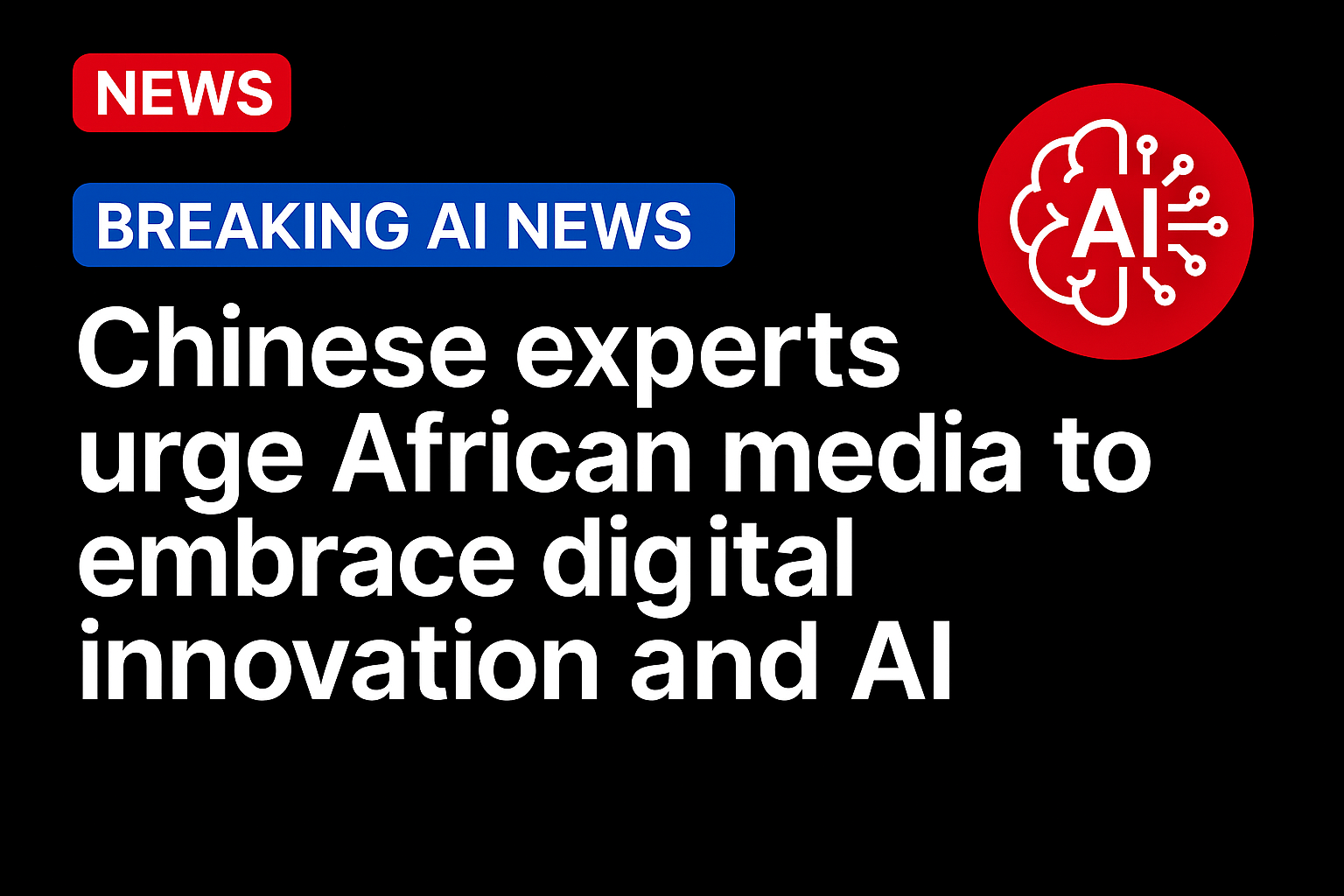Chinese experts have called on African media organizations to adopt advanced digital technologies — especially artificial intelligence — to stay competitive, improve content delivery, and meet the growing demands of modern audiences.
🔍 Key Recommendations
- AI-powered tools for content creation, translation, and automated editing, to reduce turnaround times and costs.
- Digital infrastructure investment: stronger internet connectivity, cloud hosting, and data centers to support high-quality media operations.
- Capacity building: training journalists and media managers in AI literacy, data journalism, ethics of automation, and developing local AI solutions.
- Tailoring solutions to local contexts: using AI that understands local languages, cultures, and media norms to ensure relevance and avoid bias.
- Partnerships & collaboration: between African media houses, educational institutions, and tech firms (including Chinese counterparts) to facilitate technology transfer, innovation hubs, and shared platforms.
⚠️ Challenges Highlighted
- Regulatory and ethical issues: concerns about ensuring credibility, combating misinformation, protecting data privacy, and avoiding misuse of automated content.
- Access and affordability: many media outlets — especially in rural areas — lack sufficient funding or broadband infrastructure to adopt these technologies.
- Skills gap: need for upskilling existing personnel and a lack of enough AI-trained professionals locally.
✅ Why This Matters
- Enhancing the speed, reach, and quality of journalism, especially in multilingual and low-resource settings.
- Helping media to remain financially sustainable by reducing costs through automation, and opening up new revenue models (e.g. personalized content, digital platforms).
- Supporting democratic discourse by improving access to reliable, timely news and giving local journalists tools to produce compelling, localized content.





